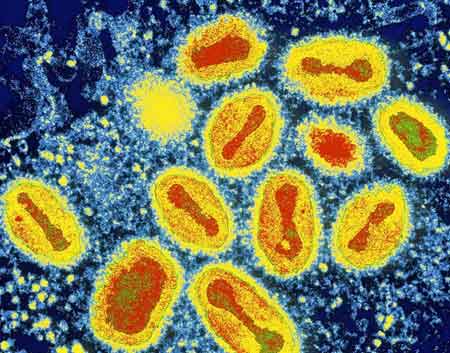
|
查看原文 The last surviving creatures on Earth will be tiny organisms living deep underground, according to scientists. Researchers used a computer model to assess our planet's fate billions of years from now. They found that as the Sun becomes hotter and brighter, only microbes would be able cope with the extreme conditions that the solar changes would bring. The research is being presented at the National Astronomy Meeting. Jack O'Malley James, from the University of St Andrews in Scotland, said: "There won't be very much oxygen present, so they need to be able to survive in low or zero-oxygen environments, high pressures, and high salinities because of evaporating oceans." Mass extinction The future of life on Earth is tied to that of the Sun, and over time, our star will become more and more luminous. Scientists from the universities of St Andrews, Dundee and Edinburgh used this fact to create a forecast for our planet's future environment. In a billion years' time, the heat from the Sun will become so intense, that the oceans start to evaporate. "Once you get to this tipping point, you get a lot more water in the atmosphere and because water vapour is a greenhouse gas, that sets this runaway greenhouse effect... and you end up with the Earth heating up to 100C or more plus what we experience today," explained Mr O'Malley James, a PhD student. This, he said, combined with falling levels of oxygen, would lead to the rapid loss of plants and larger animals. Soon after, a group of microbes called extremophiles would be the only life forms left. These tiny organisms are found on Earth today, and can cope with hostile environments. These, the scientists said, would be the only creatures that could withstand the heat, aridity and poisonous atmosphere of this future Earth. They believe that they would probably be clustered around the last drops of water deep underground. Eventually as conditions worsen they too will vanish, and in about 2.8 billion years, Earth will be devoid of all life. 'Microbial worlds' The researchers said that studying the rise and fall of life on our planet could give us an insight into how life might survive elsewhere in the Universe. Mr O'Malley James told the BBC: "If you were to find an Earth-like planet and to take a snapshot in time of the life living on the surface, it's more likely that you would find microbial life than you would the more complex life like we see on Earth today." The researchers said that microbes cause subtle changes to the ratios of gasses in the atmosphere, and this could enable astronomers to one day detect their presence on other Earth-like planets. "One of the best candidates is methane. This could be used to indicate the presence of life, although it depends on how much is produced and whether it builds up to a detectable level in the atmosphere... If we can pick up all these subtle levels of gasses on remote planets - maybe we could detect it," Mr O'Malley James said. |
据BBC7月2日报道,科学家认为,地球上最后生存的生物将是生活在地下深处的微生物,因为随着太阳变得越来越热,越来越亮,只有细菌才能在这种极端条件下苟延残喘。 圣安德鲁斯大学、敦提大学和爱丁堡大学的科学家预计未来10亿年间太阳将变得非常炽热,地球海洋开始消失。 “进入这个转折点,大气层中有许多水分,而水蒸气是一种温室气体,将加剧温室效应,地球温度升至100摄氏度,甚至更高,”苏格兰圣安德鲁斯大学的杰克·詹姆士说,与此同时,随着氧气减少,将导致植物和大型动物迅速消失。 不久,一种被称作嗜极端菌的细菌将是地球上剩下的唯一生命形式。这种微生物现在就已在地球上存在,可以在恶劣环境下生存。 “届时没有太多的氧气,因此它们需要在低氧或无氧环境下生存,高压,高盐,因为海水蒸发殆尽。”杰克·詹姆士说。 不过随着生存条件更加恶化,这种细菌也终将灭绝,大约在28亿年左右,地球将没有任何生命。 相关阅读 (编译:王辉) |
